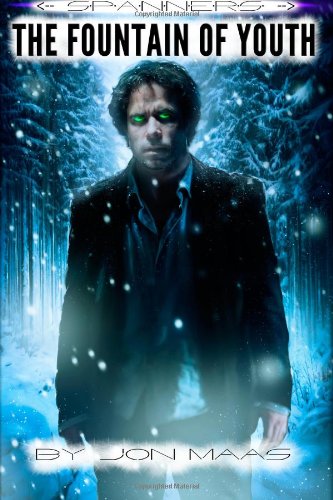We’ve all been there. The fountain of words that had been flowing so well suddenly dries up, and you can’t put anything good on the page. Sometimes you can’t write anything at all.
This syndrome happens to us all. Even the great writers Truman Capote and Ralph Ellison suffered from it.
The name of the syndrome is writer’s block, and it’s affected every contributor to the Portland Book Review at one time or another.
But when writer’s block happens, and it will, realize that it’s not an indictment of your ability as an author, but rather a reflection that you haven’t prepared well. Here are four tips to help you start off on the right foot, so read them now to avoid grief later on.
/***/
Make it easy on yourself by beginning with the most fertile premise you can imagine – Avoiding writer’s block starts with picking an ‘easy’ subject that allows you a lot of ‘outs’ if you get stuck.
Look at what JK Rowling started with when she decided to write Harry Potter as her debut novel:
- She made a fantastic world where anything is possible, from flight to invisibility, from dragons to dementors.
- Speaking of dragons and dementors, she made a world where every single mythological creature could be brought into being, as well as entities of her own imagining. This gave her a built-in pantheon of creatures that the world already knew, as well as the ability to bring in anything else she wanted.
- She made a school that always had another class to take and another room to explore when she was in need of something for the characters to do.
- She also had a regular ‘Muggle’ world, which added a further dimension.
Rowling didn’t write her debut novel about modern-day England and the comparatively pedestrian tribulations therein, nor did she make a completely unique fantasy world populated by creatures of which the reader was completely unfamiliar.
She took the best of all worlds and made it easy on herself, with astonishing results.
Outline, outline, outline … plot, plot, plot – Abraham Lincoln was purported to have said “Give me six hours to chop down a tree and I will spend the first four sharpening the axe.”
Preparation makes things easier, and writing is no exception.
The best way to prevent writer’s block later on is to spend most of your time outlining your story, focusing on the plot. The outline doesn’t need to be a gripping read with lots of details, and instead should simply explain that this happens, and then this happens, and then this character brings up this point, and then this happens …
Not exciting stuff, but it’s easier to think of plot points in the outline stage, when you’re not bogged down in the minutiae of description and the nuances of the characters’ words.
It’s tempting to just ‘get in there and write,’ and doing so might not be the worst idea. But when you’ve burned through the first three pages and can’t think of anything else, go back and make an outline. Spend a week hanging a few hundred dry plot points on paper until you have a story structure, and then build your book around that.
You’ll be surprised at how much easier it is to get through your tale.
Make characters who can bring your other interests into the story – Let’s say you want to write a crime novel.
OK, get to it.
But you also like writing poetry and making puzzles.
Those should wait. Every day you spend writing poetry is another day you don’t make progress on your crime novel. Every puzzle you make is another day you don’t write.
The above ‘stay the course’ method is a good rule when taking on a big project, but there are ways to bend that rule, namely bringing a character into your book with those same interests.
Don’t force it if it just doesn’t fit, but having a character that likes the same things you do makes everything else so much easier. Maybe your protagonist’s sidekick writes poetry. Maybe the killer leaves a trail of clues in the shapes of puzzles.
Including these attributes brings in an extra element that you can employ when you get stuck. If you can’t move the plot forward, consider rewriting a character with your interests in mind. At the very least you’ll be surprised at how much fun you can have if you do that.
 Unlock the power of your subconscious – You know how something is on the tip of your tongue and you blurt it out three days later? That’s because while you were doing other things your subconscious was working on recalling the name of that singer from the 80’s you were so desperately trying to remember.
Unlock the power of your subconscious – You know how something is on the tip of your tongue and you blurt it out three days later? That’s because while you were doing other things your subconscious was working on recalling the name of that singer from the 80’s you were so desperately trying to remember.
This also works for writer’s block. Get in the habit of thinking about things a lot. Not racking your brain, just get in the habits of thinking about things, no answer needed.
What would make my character’s relationship with his ex-wife more interesting?
What ability could I give my monster that would set it apart?
What would be a good name for the New England town the character visits?
If you sense you’re getting stuck with your story, rely on this habit and move on with other parts of the narrative if you’re able.
The solution may just come to you after a few days, and you’ll have your subconscious to thank for the answer.
/***/
So there you have it: writer’s block isn’t a failure of talent, but rather a fail to prepare accordingly. So make it easy on yourself and start things the right way. You’ll be happy you did later on.
 Jon Maas is the author of City of gods: Hellenica, which was recently given five stars from the Portland Book Review. He has also written Spanners: The Fountain of Youth, which won the 2014 San Francisco Book Festival award for Best Young Adult Fiction. He will release his third novel, Flare, shortly.
Jon Maas is the author of City of gods: Hellenica, which was recently given five stars from the Portland Book Review. He has also written Spanners: The Fountain of Youth, which won the 2014 San Francisco Book Festival award for Best Young Adult Fiction. He will release his third novel, Flare, shortly.

